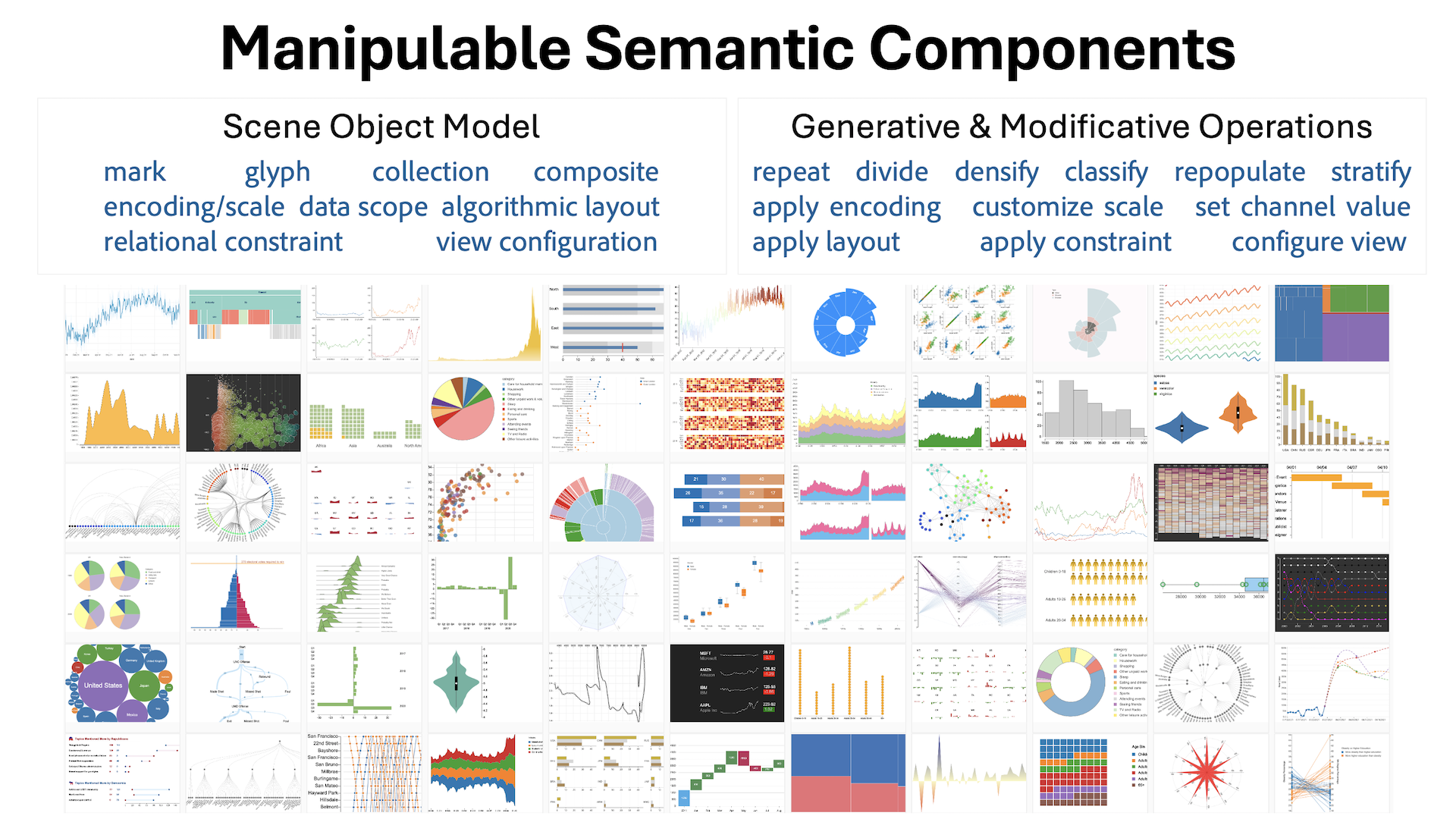Honorable Mention
Manipulable Semantic Components: a Computational Representation of Data Visualization Scenes
Zhicheng Liu - University of Maryland, College Park, United States
Chen Chen - University of Maryland, College Park, United States
John Hooker - University of Maryland, College Park, United States
Download Supplemental Material
Room: Bayshore II
2024-10-17T13:30:00ZGMT-0600Change your timezone on the schedule page
2024-10-17T13:30:00Z

Fast forward
Full Video
Keywords
data visualization, scene abstraction, visualization model
Abstract
Various data visualization applications such as reverse engineering and interactive authoring require a vocabulary that describes the structure of visualization scenes and the procedure to manipulate them. A few scene abstractions have been proposed, but they are restricted to specific applications for a limited set of visualization types. A unified and expressive model of data visualization scenes for different applications has been missing. To fill this gap, we present Manipulable Semantic Components (MSC), a computational representation of data visualization scenes, to support applications in scene understanding and augmentation. MSC consists of two parts: a unified object model describing the structure of a visualization scene in terms of semantic components, and a set of operations to generate and modify the scene components. We demonstrate the benefits of MSC in three applications: visualization authoring, visualization deconstruction and reuse, and animation specification.